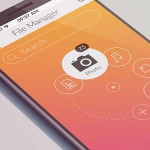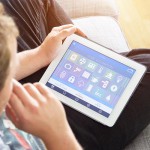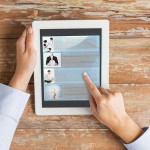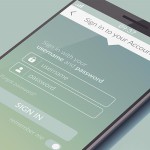Episode 11 – The Lived Experience of Glanzmann Thrombasthenia
On this episode, we talk with Caitlyn who is diagnosed with Glanzmann Thrombasthenia. Caitlyn shares her experiences living with Glanzmann Thrombasthenia while also currently attending school as a fourth-year medical student.
Transcript
Okay, so today on today's
episode, we have Kaitlyn.
2
:And Kaitlyn is currently a fourth
year medical student and will
3
:be starting residency in July.
4
:She was diagnosed with Glands and Thrombo.
5
:Athenia at nine months old after seven and
a half months of diagnostic uncertainty.
6
:As one of the only patients at Sick
Kids, and indeed across all of Canada,
7
:battling this rare bleeding disorder,
she encountered a host of challenges
8
:early on frequent hospitalizations.
9
:The uncertainty of a rare diagnosis
and the emotional and physical toll
10
:of a constant medical interventions
made her childhood uniquely difficult.
11
:Yet these early experiences forged
an unyielding resilience in Kaitlyn.
12
:Her journey through a complex
healthcare landscape not only
13
:shaped her determination to overcome
adversity, but also inspired her
14
:commitment to medicine and advocacy.
15
:Now as an emerging physician, Kaitlyn
leverages her personal experience
16
:and passion for research to drive
meaningful change in patient care.
17
:Welcome, Caitlin.
18
:It's so lovely to have
you on the show today.
19
:Hi, Natalie.
20
:Thank you so much for having me.
21
:It's such an honor.
22
:Oh, it's great to have you.
23
:And I think this is a really wonderful
experience that you're sharing with
24
:our community today because I think
lots of our members will really
25
:appreciate your experiences and
anything that you have to offer.
26
:So why don't we get started with when
were you diagnosed and, and how that all,
27
:like that story, that diagnosis story.
28
:Absolutely.
29
:So I was diagnosed when
I was nine months old.
30
:When I was six weeks old, my mom started
noticing some bruising on my hands
31
:and I actually, I wasn't walking yet.
32
:I wasn't doing anything.
33
:I was only a six week old
baby, so this is quite unusual.
34
:She took me to my family physician
and they did some initial blood work.
35
:So looking at Von Willbrand factor
as well as INR and PTT and all of
36
:that actually came back normal.
37
:However, as I got a little bit older, so
a couple months to a few months old, I
38
:started getting more dark bruises around
my body and in really unusual places where
39
:I wouldn't be bumping myself anywhere.
40
:And again, I wasn't even
walking or crawling yet.
41
:So my family physician referred
me to specialist at sick kids.
42
:And at the kids, they reviewed all
of my initial testing again again for
43
:Von Willebrand, factor I-N-R-P-T-T.
44
:And they didn't think it was
actually hematological disorder
45
:or even a bleeding disorder.
46
:So I was referred again to a dermatologist
at six children and at the hospital for
47
:six children, and they investigated me for
some other diseases such as neuroblastoma.
48
:Or blueberry muffin disease.
49
:And what they actually did is took a
biopsy of one of the petechiae that
50
:I had on my leg as they thought that
this might be a cancerous lesion.
51
:And now knowing that I have a
bleeding disorder, of course,
52
:this was just a popped capillary.
53
:So the biopsy came back normal.
54
:And at this point I was referred
back to hematology again.
55
:And they did, they did what was
called a bleeding time test.
56
:This test came back as abnormal.
57
:And so at this point, they
knew that I likely had a
58
:platelet dysfunction disorder.
59
:And I was tested for a few of them,
Bernard sole gray platelet syndrome,
60
:and as well as glands spins, and the
test for glands came back positive.
61
:And this all of the diagno diagnosis
and all of the different tests were all
62
:completed when I was nine months old.
63
:Wow.
64
:That's, that's amazing that they actually
went through all of those tests rather
65
:than kind of what we sometimes hear as
just sending you home, because nobody
66
:really knows what's happening, but what
a, what an experience at nine months old.
67
:That's, that's a big, that's a big
journey now, with you having that
68
:diagnosis at such a young age, were
you then followed, like what was your
69
:care and treatment like after that?
70
:So it was a little bit interesting because
when I was nine months old, the only
71
:symptom I had up until that point was the
Petey eye and the bruising on my body.
72
:And because of the nature of
the rarity of the disease.
73
:Even at sick kids, there weren't
a lot of other patients that were.
74
:That they were following
with the disorder.
75
:And I believe I was one of the first
people that the doctor who diagnosed
76
:me actually diagnosed with Glands mins.
77
:So it was really unclear what the
trajectory of my disorder would be like.
78
:And up until I was actually about
four years old, I never really
79
:had any severe bleeding symptoms.
80
:So it was kind of uncertain as to what.
81
:A diagnosis of glands would mean for me.
82
:I was followed regularly.
83
:But every six months I would
have just a regular follow up.
84
:But at four, the age of four years
old, I started having some very
85
:severe nosebleeds requiring a
lot of frequent hospitalizations.
86
:And it was at that point when
we realized how serious glands
87
:could, would actually be.
88
:And just for clarification for anybody
listening, when you say serious
89
:nosebleeds, what do, what does that mean?
90
:Because, because we have so many
different understandings of what
91
:a serious nose bleed is, and
there's so many misconceptions of
92
:what that actually constitutes.
93
:So can you describe a bit more
about what does a serious nose
94
:bleed that would require a
hospitalization head look for you?
95
:Yeah, that's actually a great question.
96
:So a serious nosebleed for me
would be a nosebleed that would
97
:not, would, would just not stop.
98
:So I would hold pressure.
99
:It would often be going down my throat
and I would be swallowing a lot of
100
:blood and they're vomiting at the blood.
101
:And this would go on for, could go on
for hours and hours and hours and often
102
:I would get really faint and fatigued.
103
:I'd pass out at that 0.911
104
:would have to be called and I'd
be transferred to the hospital
105
:and even at the hospital.
106
:Because holding pressure
didn't often work.
107
:We would have to call the ENT
service to have my nose packed.
108
:More often than not.
109
:And on a few occasions as well more
than a dozen I would need red blood cell
110
:transfusions or platelet transfusions.
111
:And a nose bleed has actually
resulted in me being admitted
112
:to the ICU on one occasion.
113
:Wow.
114
:Wow.
115
:Because I feel like lots of
times those aren't talked about.
116
:As frequently.
117
:Mm-hmm.
118
:Or understood as, as, as well.
119
:And I'm not sure if I missed this,
but how old were you at the time
120
:that the severe nosebleed started?
121
:Four years old.
122
:Four years old.
123
:Wow.
124
:So, and this was this prior to going
to school, were you in school already?
125
:I was in like preschool, but
I was not in regular school.
126
:Yeah.
127
:Okay.
128
:So did they come up with like a
bit of a plan for the nosebleeds?
129
:'cause ICU that's pretty significant
when we're, when those are the
130
:kind of nosebleeds you're having.
131
:So what was the plan, the outcome of that?
132
:Yeah.
133
:So I'll start off with, I first lived
in like the suburbs of Toronto and
134
:actually because I needed to go to
the hospital so often and specifically
135
:sick kids where they knew how to treat
a child with this bleeding disorder,
136
:that was actually really difficult
because the ambulances were only allowed
137
:to take me to the regional hospital.
138
:So we actually had to move to Toronto
so that I could have this emergent care.
139
:And then at the schools that I was
at my mom was really great and she
140
:talked to all my teachers beforehand
when I was entering a class as well
141
:as the principal of the school.
142
:And so that everyone would know
what to do in case I had a bleed.
143
:And the plan was really to just call
her right away so that she could
144
:come and pick me up and manage.
145
:Manage the bleed.
146
:So she actually learned how
to pack my nose as well.
147
:And if that wasn't good enough, then
I would be taken to the hospital.
148
:Okay.
149
:Okay.
150
:And was there any like
prophylaxis or anything that was
151
:offered or anything like that?
152
:No, no.
153
:So I know there's prophylaxis for
hemophilia patients but nothing like
154
:that existed for glands in patients.
155
:Okay.
156
:Okay.
157
:Good to know.
158
:And was, was this like, was
your diagnosis something that
159
:came as a surprise to family?
160
:Was there other family members that had
been dealing with bleeding disorders?
161
:What was, how did that work?
162
:Yeah, so it was definitely a surprise.
163
:There was no one else in my
family with Lyme disorders.
164
:My parents are not consanguineous.
165
:So they did not expect anything
like a genetic disorder.
166
:And actually this was a big discussion
when they were deciding on whether
167
:or not to have another child
because they were actually tested.
168
:For the genetic mutation.
169
:And at the time when I was at that
age, so around like:
170
:testing wasn't where it is today.
171
:And it couldn't actually detect
that they had a mutation.
172
:So when they were going on to have
another child, they did not actually
173
:know that they were carriers and they
thought I was a spontaneous mutation.
174
:But we know now that that's not true,
as my brother also has the disorder.
175
:Okay.
176
:Okay.
177
:Okay.
178
:So that it's just two of you,
yourself and your brother.
179
:Yeah.
180
:Okay.
181
:So how did, how did this sort
of play out for you as you got a
182
:little bit older, like in terms of
teenage years and things like that?
183
:How did that play out?
184
:I'll start with my like, older childhood
years, I guess, because I think that's
185
:where it was the hardest for me.
186
:I missed out on a lot of sports and
a lot of activities that my peers
187
:were engaging in because it was too
dangerous for me to participate.
188
:A lot of the times like skiing
snowboarding, like contact sports, things
189
:like that, I was often sitting on the
sidelines and just watching my friends.
190
:By my teenage years I had gotten more
used to this and just knowing that I
191
:couldn't participate in a lot of things.
192
:There was one event in particular that I.
193
:Sort of stand out stands out to me
is when I was planning on going on
194
:one of my class overnight trips and
I actually had to miss that due due
195
:to a spontaneous nosebleed as well.
196
:And those kinds of things were very
upsetting for me as I was anticipating
197
:trying to do something really fun
with my friends, something that was
198
:supposed to be safe, but I just.
199
:I had to miss it because of something
spontaneous I couldn't control.
200
:And I think it was really the fact
that I couldn't control a lot of this,
201
:that really was more upsetting for me.
202
:And yeah, but, so by the time I got
to my teenagers as well, I was a
203
:little bit more used to the fact that
I'd had to adapt to certain things.
204
:Some, something else in particular
was when I was nine, I had a knee
205
:bleed, so he orthosis in my knee.
206
:And this is not really
expected or common from glands.
207
:Mens, you usually see it
with hemophilia patients.
208
:And this, because it wasn't expected
I like, I just didn't really.
209
:Know what to do.
210
:I never thought that this would happen
to me where I would need to be on
211
:crutches for six months, be going
to the hospital three times a week
212
:for factor replacement therapy as
well as engaging in physiotherapy.
213
:Whereas for patients who are
diagnosed with hemophilia or
214
:severe one Willebrands, this is
something that's counseled early on.
215
:And so I had to miss a lot
of school because of that.
216
:But through this experience actually,
and something that I also, I wanted
217
:to mention is I was able to find
a passion for swimming and I.
218
:Even while I was not able to walk I
actually tried out for a competitive
219
:swim team because I was still able
to swim and I ended up becoming a
220
:competitive swimmer for 10 years.
221
:So by the time I made it
to my teenage years in high
222
:school, I was already swimming.
223
:I'd already found a community and
friends through my swim team and such.
224
:So I, I think that by the time I
reached that point in my life, I
225
:was a little bit better adjusted to
living with the bleeding disorder.
226
:And what a great.
227
:Sort of success in adapting and finding
that community that you were less
228
:likely to miss out on different things
that were happening, and that would be
229
:less, maybe risky for your situation
and having to worry about different
230
:bleeds and different spontaneous bleeds.
231
:So that's a really neat story around
adapting to that and finding your way.
232
:Did you and I, I don't know if
you're comfortable with this and if
233
:not, that's okay, but did you have
any difficulties with menstruation?
234
:Yeah.
235
:Sure, I'll talk about that for a bit.
236
:So leading up to monarchy we knew
that this might be an issue and the
237
:plan, we would, we'd always talked
about the plan with my hematologist
238
:and I was seeing a gynecologist as
well, just in order to plan for that.
239
:And we knew that I would always be on
birth control starting when it happened.
240
:The issue was we didn't know how serious
my first period would be when I had it.
241
:So that was always something
that was like looming.
242
:Kind of just in the back of everyone's
minds, but I was really lucky
243
:that once I had my first period, I
started on birth control right away.
244
:And the only issues I really had
were trying to, like a few years
245
:into taking my first birth control
pill, I started have some break,
246
:having some breakthrough bleeding.
247
:And I had to switch the pill that I was on
and, I've actually been on that pillow for
248
:about 10 years now, so I'm really grateful
that I haven't had too many issues there.
249
:But I know that a lot of other
women do, and I'm really, I'm just
250
:really lucky and really fortunate.
251
:Right.
252
:So for you, the birth control pill
was a success in terms of helping
253
:manage that aspect of bleeding.
254
:Yeah.
255
:And you're right, it doesn't always work.
256
:There are lots of, lots of
people who don't tolerate the
257
:birth control pill very well.
258
:But in this case, for you, that
that was, for those that can
259
:tolerate, that can be a really
useful solution to at least managing
260
:that aspect of the bleeding, right?
261
:Mm-hmm.
262
:Any other experiences while
you were on this journey?
263
:I really liked the swimming because it,
it's, it's such a great example of how to.
264
:But what the, what the potential
ways of finding your way and, and
265
:kind of feeling a little bit more,
especially during the teenage years
266
:of how to not feel so outside of it
and be sitting on the sidelines and
267
:not be a part of some of those things.
268
:But any other experiences that you
can think of that you'd like to
269
:share that were either positive or
not as positive in terms of your
270
:experience of this bleeding disorder?
271
:Yeah.
272
:So.
273
:Oh, I guess I'll talk a little bit about
when I worked at Sick Kids I had the
274
:opportunity to work in the hematology
department actually and do some research
275
:there during the summers between undergrad
and during one of the summers actually,
276
:there was a patient there who was
newly diagnosed with Glanton thrombus.
277
:And it was really rewarding for me
to be able to meet the family share
278
:a lot about my journey and give
them some kind of hope and just.
279
:See, you know, talk to the parents
and have them be able to see
280
:like, look like Glands, men's is
not like a life ending disorder.
281
:I'm here and I've grown up
with it, and now look, I'm even
282
:like working at the hospital.
283
:And so it was really nice to be able to
give them some sort of hope and such.
284
:But then coming to medical school.
285
:It was a little bit difficult for me
to be seeing we to be seeing a lot
286
:of the patients inside the hospital
directly, if that makes sense.
287
:And a lot of it reminded me of
my time in the hospital and that
288
:was something that I had to work
through in order to be able to.
289
:Go to work and not sort of think
about my own experiences as a patient,
290
:but be able to fully provide for
my own patients without letting
291
:that emotional aspect interfere
with the care I was res providing.
292
:That's really interesting
how you highlight that.
293
:That was almost triggering for you.
294
:Mm-hmm.
295
:Right.
296
:I think that's a really great share in
the sense that just because maybe, you
297
:know, you grow up and you adapt and
you do all these things, it doesn't
298
:mean that some of those triggers of
those experiences don't still exist.
299
:Mm-hmm.
300
:So I, I think that's a really interesting.
301
:Share to make because I do think that
many of us are drawn to our careers
302
:based on many of our experiences.
303
:I have VWD and I'm drawn to
be part of this community and
304
:work inside of this community.
305
:But I, I think that it's a really good
point that you make that sometimes you
306
:have to, you re end up revisiting some
of your own experiences in being a
307
:part of the community in some fashion.
308
:So it can be triggering and
it can be almost a period of
309
:growth to overcome some of that.
310
:So that's a really interesting
perspective that I hadn't thought of.
311
:And I appreciate you sharing that.
312
:If you, and, and now, how, as at this
stage, are your symptoms the same?
313
:Have they shifted?
314
:How is, how is the bleeding
disorder picture for you
315
:at this stage of your life?
316
:Yeah.
317
:So this stage of my life, I'm
really grateful that my really
318
:severe nosebleeds have, almo
have basic, pretty much stopped.
319
:I do still sometimes get nosebleeds
that won't stop with just pressure,
320
:but I have learned to manage them.
321
:I am really lucky I've access
to surgicel and gelfoam, which
322
:I used to pack my own nose.
323
:And so if I have a nosebleed that
I can't stop with just pressure.
324
:I can quickly just pack my nose and it's,
it, it, it does stop thankfully within
325
:you know, 10 to 20 minutes of the packing.
326
:And in terms of other symptoms, I haven't
experienced a joint bleed since I was
327
:nine, so I'm really grateful for that.
328
:As I mentioned, I don't really
have issues with my periods.
329
:Mm-hmm.
330
:And so I'm really in like a nice spot
where I still bruise really easily.
331
:Still get the occasional nosebleeds,
but I sometimes can even forget
332
:that I have a bleeding disorder.
333
:I'm able to do almost
everything that anyone else can.
334
:And I've even started like doing
things that I, my parents and nobody
335
:else probably ever thought I would
like, I learning to surf and things
336
:like that, which can have some risks.
337
:But as an adult, I know the risks
now, and I also know how to treat
338
:myself when things do happen.
339
:And so.
340
:I'm really grateful that it doesn't
really affect my day-to-day life anymore.
341
:Wonderful.
342
:And it's also very hopeful and a
reminder that a bleeding picture at
343
:one stage isn't necessarily the same
bleeding picture at a different stage.
344
:Right, exactly.
345
:Yeah.
346
:So it's really good to sort of be reminded
of that and packing your own notes,
347
:did, who taught you how to do that?
348
:So when I was like a child and my
and like always in and outta the
349
:hospital due to the nosebleeds, the
ENTs taught my mom how to do it.
350
:And I think just from being the
one, getting like my nose packed
351
:all the time, I just picked up
what they were doing and just the
352
:experience of it taught me how to.
353
:My own nose, I guess.
354
:I wasn't really formally taught,
but just having it done like
355
:hundreds and hundreds of times.
356
:Right.
357
:Will teach you.
358
:Yeah.
359
:Yeah.
360
:You picked up on how it works
after a number of times, I'm sure.
361
:Yeah.
362
:So, Caitlin, in terms of your
experiences, and for those
363
:that may have same diagnosis.
364
:Is there anything that you would
want others to know who might
365
:share your diagnosis or even a
bleeding disorder in general?
366
:Is there anything that you would want to
share or have them know or any, anything
367
:you would want to share with that?
368
:I think one of the points you
mentioned was really great.
369
:Bleeding picture at one point may not look
like a bleeding picture in the future.
370
:And so that was the case with myself.
371
:It might not be the case for others,
but it's important to stay hopeful.
372
:But another really important thing that
I think everyone with a bleeding disorder
373
:or even a rare disease should know, is
that you are the expert on your disorder.
374
:Oftentimes you'll be the only
one if presenting in an emergent
375
:situation that knows about your
diagnosis and how to manage it.
376
:And it's really important to
educate yourself and to learn
377
:how to advocate for yourself.
378
:There were a lot of times
where I was in the hospital.
379
:I had doctors and nurses who had never
come across my disorder, even ENTs
380
:who were looking to pack my nose.
381
:And there's certain different packings and
management strategies that may work for
382
:one bleeding disorder or one presentation
but not someone with glands, mens.
383
:And so I'm really grateful my mom was
able to advocate for me when I was a kid
384
:and prevented a lot of adverse outcomes.
385
:And now.
386
:I do the same for myself, and I
think that's really important for
387
:anyone with a rare disorder to know.
388
:Thanks for that.
389
:I think those are really important
points and I'm wondering as a
390
:follow up, that advocacy piece
is so important, but it's hard.
391
:It's hard to do that
because for many folks.
392
:We go in assuming doctors know exactly
what's going on, and many of us learn
393
:very quickly with a bleeding disorder
that that's not always the case.
394
:Do you have any suggestions on how
to develop those advocacy skills?
395
:Yeah.
396
:I think the first one would be reading
up as much as you can about the disorder,
397
:trying to educate yourself asking
questions every time you're at a doctor's
398
:visit if you're uncertain about something.
399
:And not, not only helps you answer
your own questions, but challenges
400
:your healthcare providers as
well to be able to answer them.
401
:I think another thing that's really
nice about the world we live in today is
402
:that there's lots of online communities.
403
:And even different organizations
that weren't available when I was a
404
:kid to be able to connect with other
patients with the same disorder.
405
:And so I've actually there's actually
like the Glanton Research Foundation now,
406
:which I've been a part of their community.
407
:And there's a lot of people
sharing information, different
408
:information there on treatments
and asking questions and such.
409
:The only thing is I would just
caution that a lot of these a lot of
410
:the patients who are part of these
groups are from different countries
411
:worldwide, and management avail
availability for certain kinds of
412
:management that are available in Canada.
413
:Are not available there and vice versa.
414
:So it's always really important to
do your own research and talk to your
415
:doctors and work with the doctors and
your multidisciplinary care team as a
416
:team to decide what would be best for
you with the treatment options available.
417
:That's a great point and I, I think
it's a really neat reminder again of
418
:all the communities that are out there,
but also with the just disclaimer of,
419
:you know, you really have to check
in with your, your healthcare team.
420
:And the other thing that comes to mind
is you had such advantages being in a
421
:multidisciplinary clinic that was able to.
422
:Anticipate, for example, monarchy
coming up and was able to really, you
423
:could see a gynecologist, you could see
your hematologist, and just a, maybe
424
:a reminder to anybody listening that.
425
:If you are not in a multidisciplinary
clinic, it doesn't mean you can't be.
426
:So you can actually ask for a
referral to a nearby multidisciplinary
427
:clinic if that is something that
you feel would be beneficial to you.
428
:It's a bit of a, it
can be a bit of a trek.
429
:It's not always close.
430
:As you said.
431
:You actually ended up moving to be closer.
432
:Right.
433
:But if, if somebody is.
434
:Invested and wants to
take the time to do that.
435
:It is something that they can do.
436
:I, I don't know that everyone knows
that they can actually ask to be
437
:referred to a multidisciplinary clinic.
438
:I think sometimes the assumption
is, well, this is where I've
439
:got, this is all I've got.
440
:That's what I've gotta do.
441
:But it is actually something that
you can request if you feel that
442
:that would be beneficial to you.
443
:So thank you so much for all
of this information and just
444
:sharing your experiences.
445
:I really think that this will be
such a value add to our folks in
446
:the community and being able to have
another voice and their experience
447
:and what they did shared out there.
448
:So I really, really appreciate
you joining me today.
449
:I know how busy you are with your.
450
:Being a medical student.
451
:So it was super, super
wonderful that you joined today.
452
:Is there anything else you wanted
to add before we say goodbye?
453
:Well thank you so much for having me.
454
:I love that we're able to create this
community and especially on Hero X
455
:with, for women with bleeding disorders,
and I'm looking forward to seeing
456
:what else hero X does in the future
and being a part of that as well.
457
:Oh, thanks so much.
458
:Wonderful.
459
:Thanks so much Caitlin.
460
:We really appreciate you being here.
461
:Thank you for having me.









